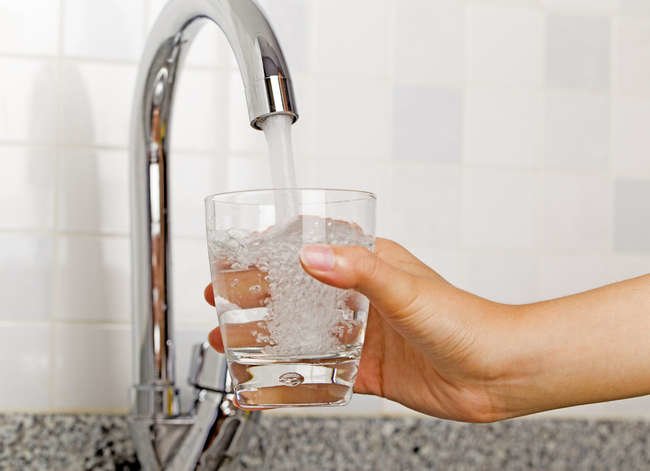We may earn revenue from the products available on this page and participate in affiliate programs. Learn More ›
Results of a Professional Water Test
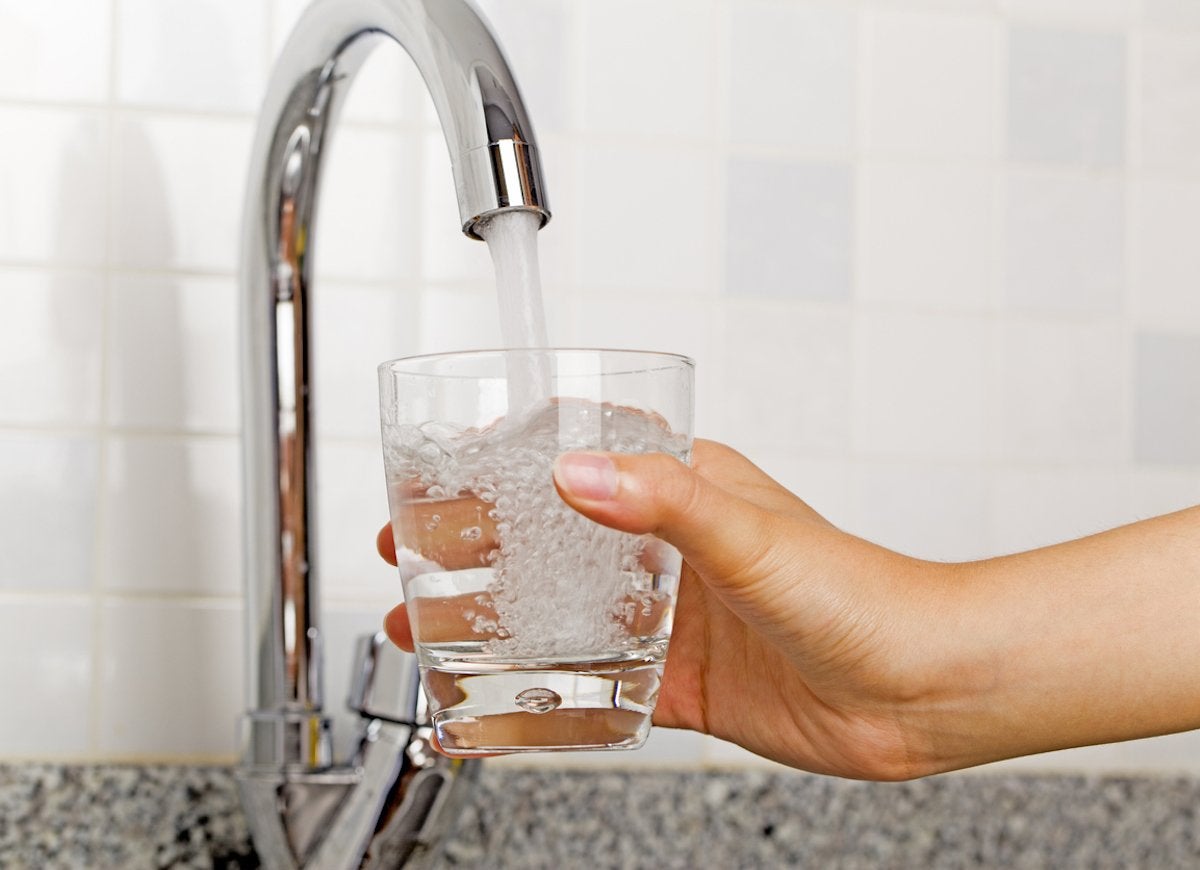
The best way to determine if you have water that would benefit from a softener is to have your water professionally tested, although there are DIY testing kits widely available at home centers and hardware stores. Many companies offer take-home sampling kits that you can drop off or mail in to have your water evaluated for a fee; in municipal water systems, you can contact the local water department to find out the hardness of your water. Water is classified according to the milligrams per liter (mg/L) of dissolved calcium carbonate: 0 to 60 mg/L is classified as soft to slightly hard; 61 to 120 mg/L is moderately hard; 121 to 180 mg/L is hard; and more than 180 mg/L is very hard.
Related: 25 Home Maintenance Problems That Only Take a Minute to Fix
Staining
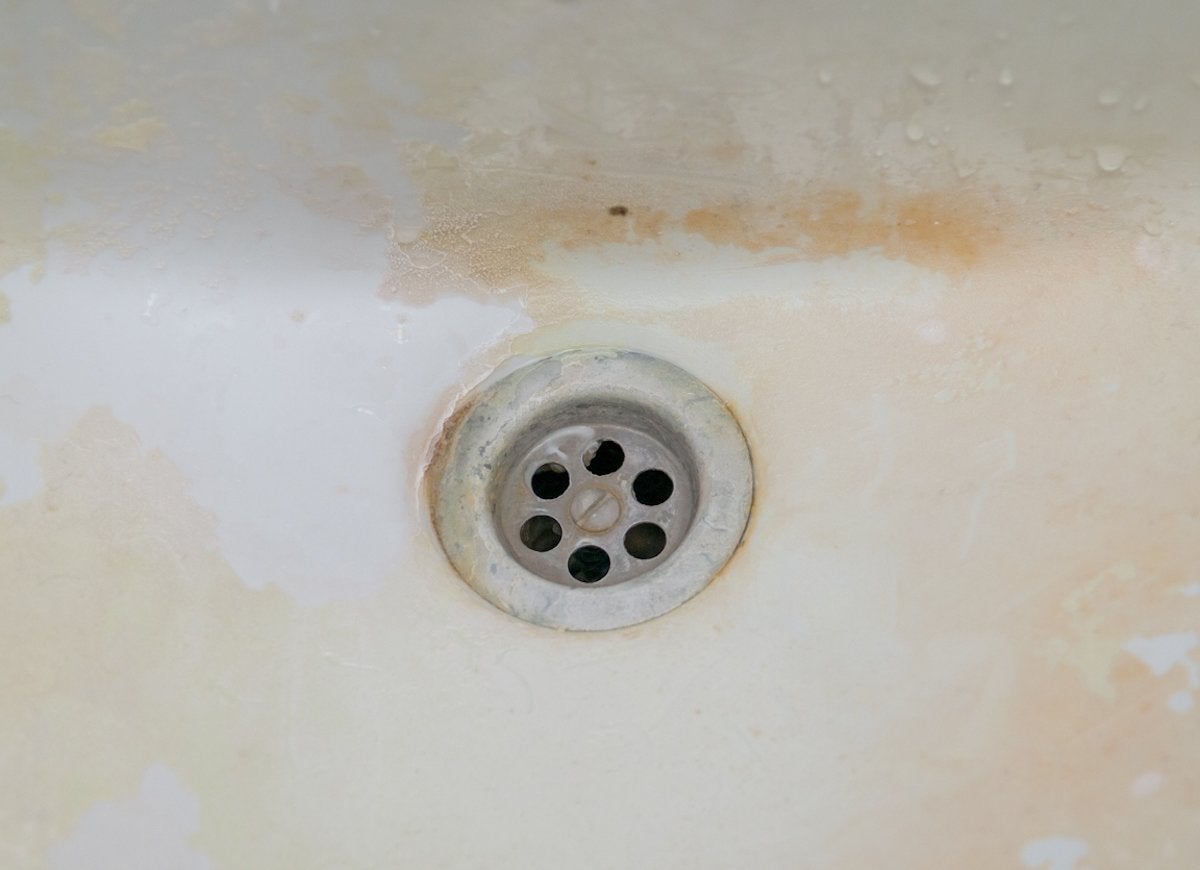
Because hard water contains dissolved minerals and metals, it can create ugly, stubborn stains on your sinks, toilets, and bathtubs, and leave white, scaly deposits around your faucets. A short-term fix for stains on fixtures is to soak the stain in one cup of bleach and one-half cup of powdered dishwasher detergent; to remove white deposits from faucets, spray with white vinegar, let sit for a few minutes, and then rinse and wipe thoroughly with a soft cloth.
Scale Buildup
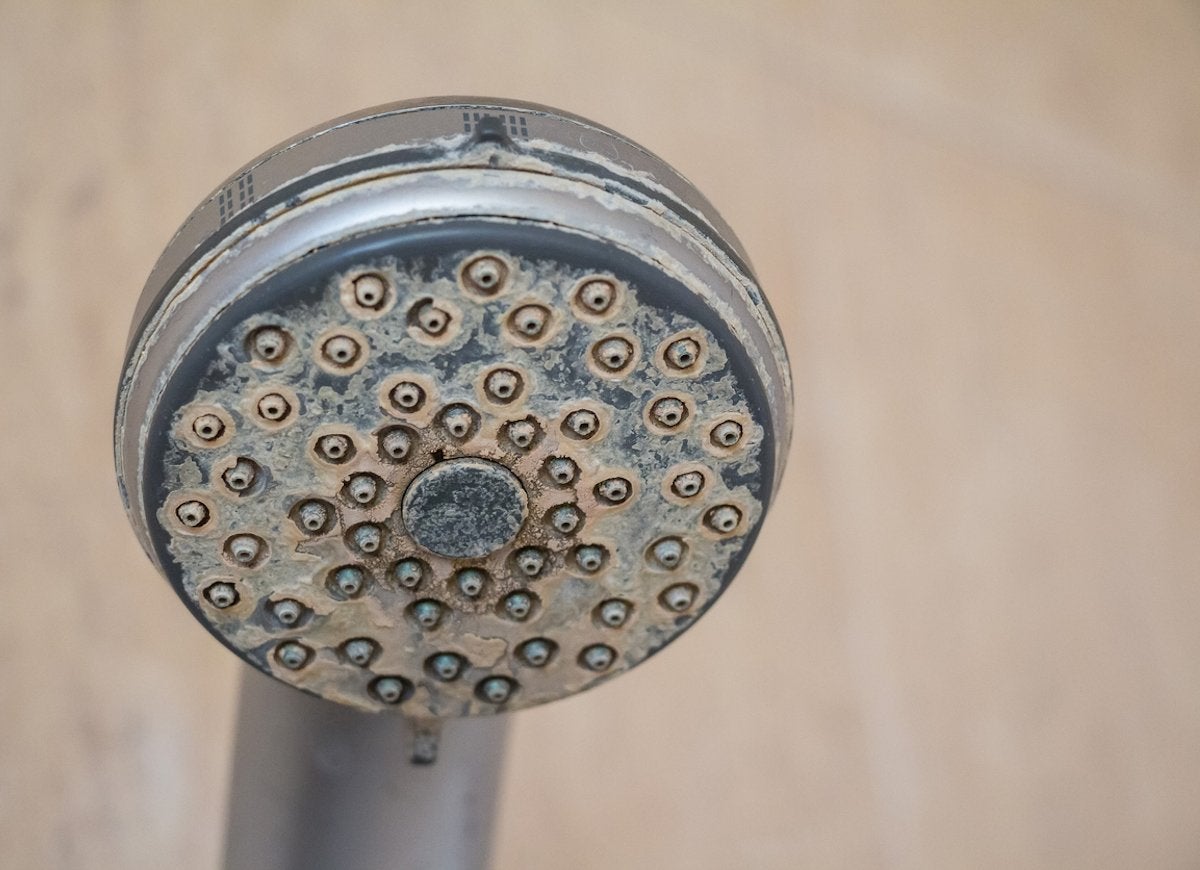
Mineral deposits—known as scale or limescale—can build up on your pots, coffeepots, teakettles, dinnerware, glassware, and cutlery, leaving a hard, chalky film that is difficult to remove. Even worse, scale can build up inside appliances that use water, such as dishwashers and washing machines, as well as inside your plumbing system, leading to expensive repairs.
Higher Utility Bills

If your utility costs are rising, you may want to check your home’s plumbing for signs of scale. Over time, scale buildup can clog pipes, and as this happens, your heating system has to work harder to push water through. As well, scale buildup can affect the energy efficiency of boilers and hot water heaters.
Gray or Faded Laundry
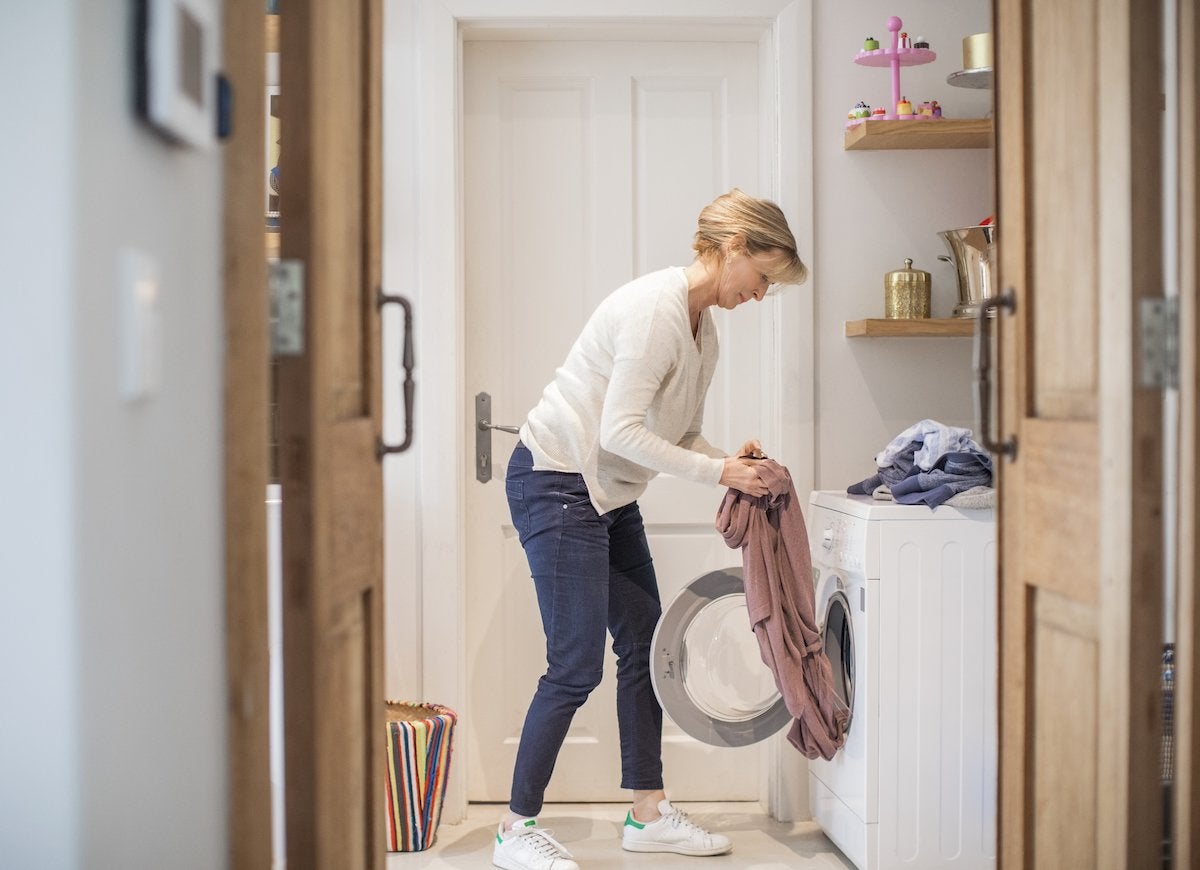
Hard water makes soap and laundry detergents less effective and can leave behind a scummy residue that causes your linens and clothing to fade, appear dull or gray, develop a sour smell, and become rough and scratchy. Washing clothes and linens in hard water can also cause premature wear on the fabrics.
Dry Skin and Hair
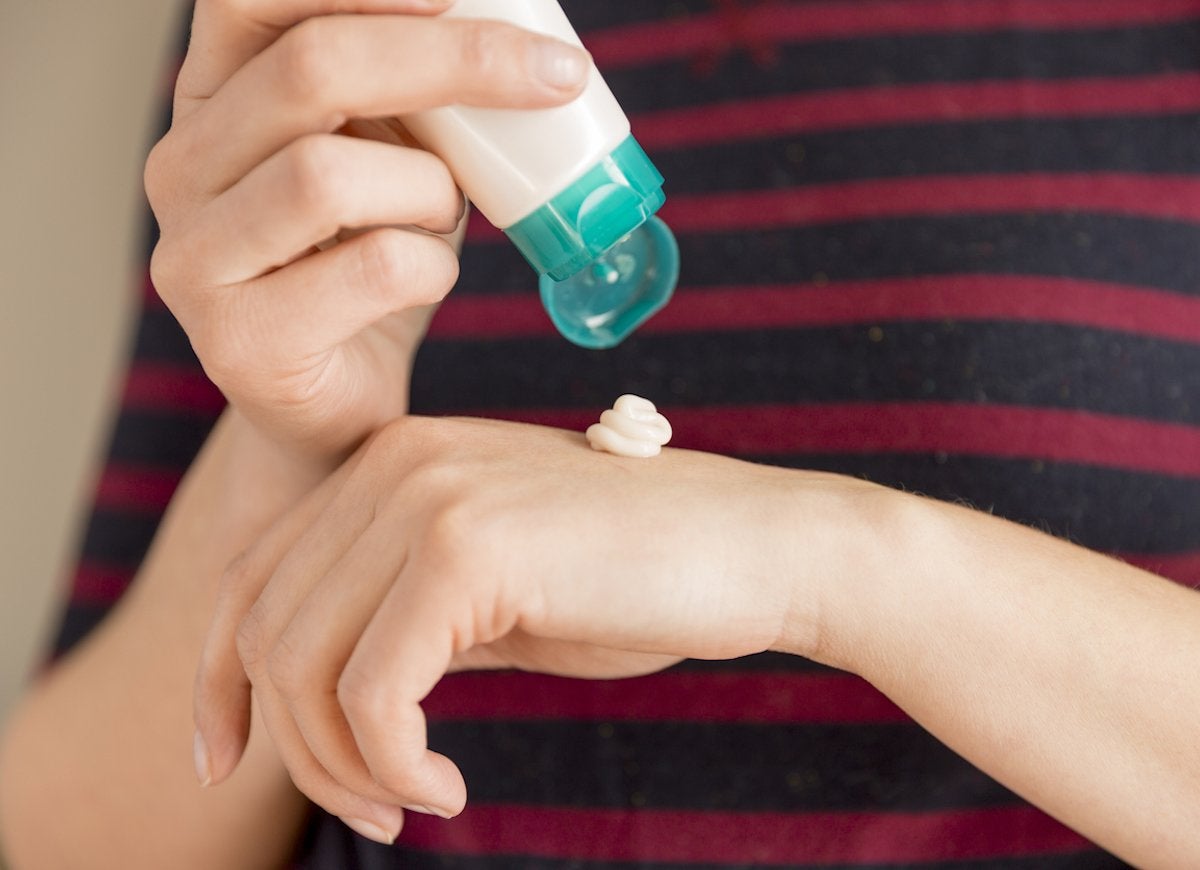
The minerals in hard water can leave your skin and hair dry, flaky, and itchy, and can also block your skin’s pores, causing pimples, blackheads, or inflammation. Because soap doesn’t dissolve properly in hard water, a sticky soap film can linger on your skin and prevent the removal of bacteria and dirt. The same sticky film can make your hair dry, dull, and limp.
Water Heater Woes
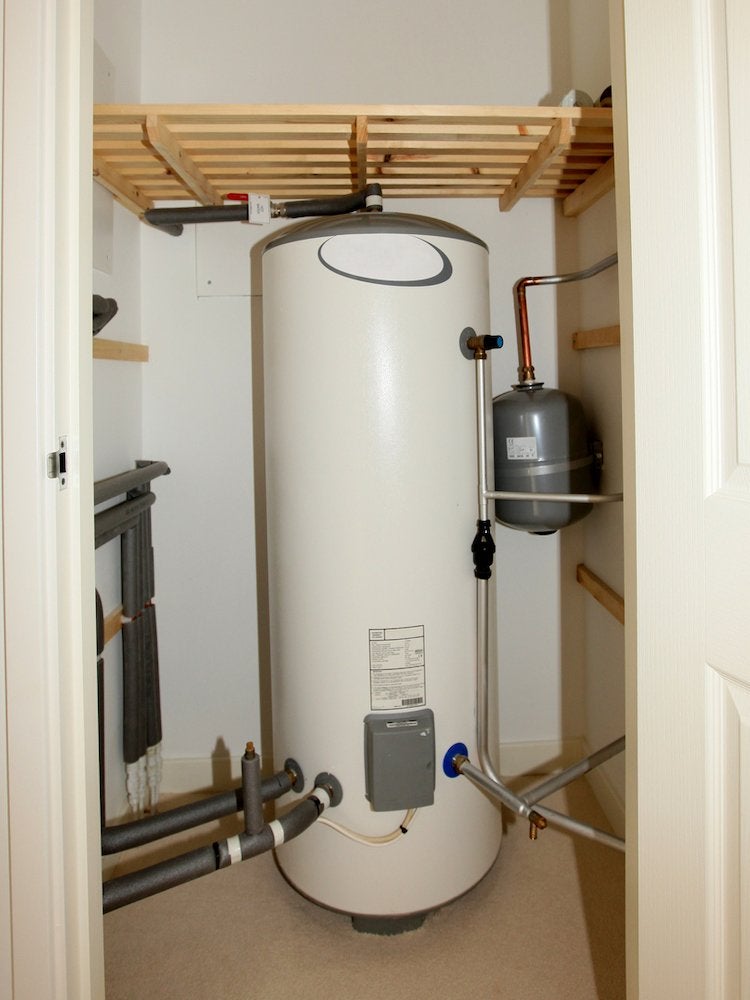
One of the most costly and inconvenient signs that you need a water softener is having your water heater malfunction or fail. Hard water can lead to rapid and premature aging in water heaters, especially electric models, because heating hard water accelerates the formation of scale inside the tank as well as on the tank’s expensive heating elements.
Related: 10 Home Heating Mistakes That Spike Your Utility Bills

Everything You Need for a Lush and Healthy Lawn
Keeping your grass green and your plants thriving doesn’t just take a green thumb—it starts with the right tools and supplies.

